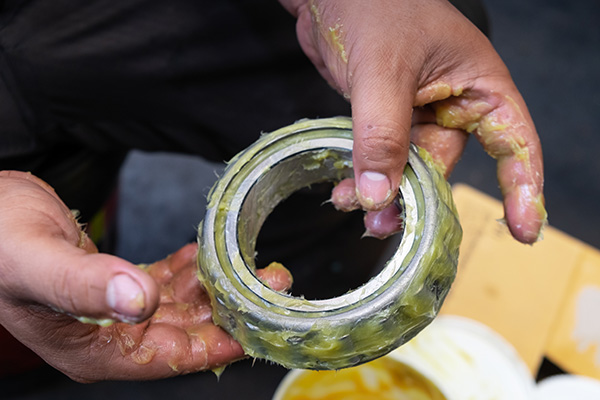
Wheel bearings may not get much attention compared to tires or brakes, but they play a critical role in your vehicle's safety and performance. These small but strong components are located within the hub assembly of each wheel. Their job is to allow the wheels to spin smoothly while supporting the vehicle’s weight and managing road forces as you drive.
When wheel bearings are in good condition, you don’t notice them. But when they begin to fail, they can make your car noisy, unstable, and potentially unsafe. Understanding the signs of worn wheel bearings can help you address the issue early and avoid serious complications down the road.
Common Signs of a Worn Wheel Bearing
One of the earliest and most recognizable signs of a worn wheel bearing is a strange noise. This noise can vary depending on the extent of bearing deterioration, but it typically begins as a faint humming or grinding that intensifies as the vehicle accelerates.
The sound typically originates from one side of the vehicle, and it may change pitch or volume when the vehicle turns. For example, if the noise gets louder when you turn left, it could indicate a problem with the right wheel bearing. This is because the weight of the vehicle shifts to that side, putting more pressure on the damaged part.
Another sign is uneven tire wear. Worn bearings can cause the wheel to wobble slightly as it spins, leading to inconsistent contact with the road surface. Over time, this can cause uneven wear on your tires and reduce their lifespan.
You might also notice a vibration in the steering wheel or a pulling sensation while driving. As the bearing gets looser, it can affect your steering and create a feeling that the vehicle isn’t tracking straight. In more severe cases, it may even feel like the wheel is shifting under your control.
How Wheel Bearings Wear Out
Wheel bearings are built to last a long time, but they aren’t indestructible. Over time, exposure to heat, moisture, and road debris can degrade the bearing’s lubrication and cause internal damage. Once the protective seals wear out, dirt and water can get inside and accelerate the wear process.
Driving through flooded roads, hitting potholes or curbs, or overloading your vehicle can also contribute to premature bearing failure. And since bearings are usually sealed within the hub assembly, you can't just re-grease them like in older vehicles. Once they’re worn out, replacement is the only option.
What Happens If You Ignore a Failing Wheel Bearing
A worn wheel bearing won’t fix itself. If left unaddressed, the symptoms will only get worse. The noise will increase, handling will deteriorate, and your tires and suspension may suffer damage due to the added stress.
In extreme cases, a severely worn wheel bearing can cause the wheel to separate from the vehicle while driving. While rare, it’s a risk that underscores how important it is to deal with wheel bearing problems early.
Additionally, modern vehicles use wheel speed sensors for systems like ABS and traction control. A damaged bearing can interfere with the sensor’s readings, triggering warning lights and reducing your vehicle’s stability and braking effectiveness.
When to Get Your Wheel Bearings Checked
If you hear grinding, growling, or humming noises that change with speed or while turning, it’s time to have your vehicle inspected. Vibrations in the steering wheel or signs of pulling while driving are also red flags.
Even if you do not hear any obvious noise, having your wheel bearings checked during routine maintenance, such as brake inspections or tire rotations, is a good idea, especially if your vehicle has high mileage or you frequently drive in rough conditions.
Wheel Bearing Replacement and What to Expect
Replacing a wheel bearing involves removing the wheel hub and pressing out the old bearing, which requires specialized tools and knowledge. It’s not a do-it-yourself job for most drivers. Professional replacement ensures the bearing is installed with the correct torque and alignment, protecting your new parts and maintaining a smooth ride.
In most cases, if one bearing has failed due to age or wear, it's a good idea to have the opposite one inspected as well. Catching a worn bearing before it fails completely can save time and money and avoid unexpected breakdowns.
Trust Autoworks of Issaquah for Wheel Bearing Diagnosis and Repair
If you suspect your vehicle may have a worn wheel bearing, don’t wait. At Autoworks of Issaquah in Issaquah, WA, our skilled technicians can identify the source of the problem and provide fast, reliable repairs using quality parts.
Let us help restore your peace of mind and driving confidence. Bring your vehicle to Autoworks of Issaquah for a professional inspection and ensure your wheel bearings are in top shape before they become a bigger problem.